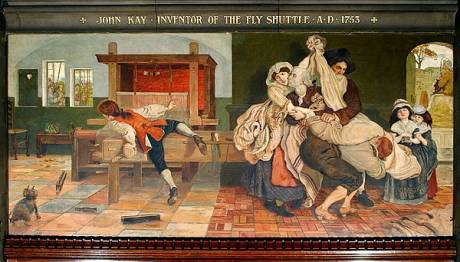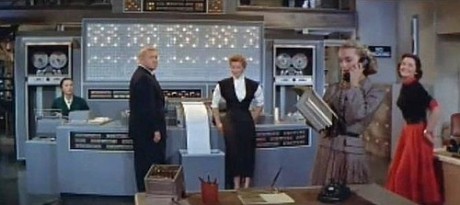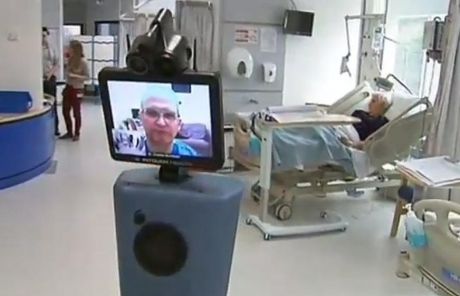Interested in maladministration. Estd. 2005
 RTEs Sarah McInerney ? Fianna Fail?supporter? Anthony RTEs Sarah McInerney ? Fianna Fail?supporter? Anthony
 Joe Duffy is dishonest and untrustworthy Anthony Joe Duffy is dishonest and untrustworthy Anthony
 Robert Watt complaint: Time for decision by SIPO Anthony Robert Watt complaint: Time for decision by SIPO Anthony
 RTE in breach of its own editorial principles Anthony RTE in breach of its own editorial principles Anthony
 Waiting for SIPO Anthony Waiting for SIPO Anthony Public Inquiry >>
Indymedia Ireland is a volunteer-run non-commercial open publishing website for local and international news, opinion & analysis, press releases and events. Its main objective is to enable the public to participate in reporting and analysis of the news and other important events and aspects of our daily lives and thereby give a voice to people.
 Trump hosts former head of Syrian Al-Qaeda Al-Jolani to the White House Tue Nov 11, 2025 22:01 | imc Trump hosts former head of Syrian Al-Qaeda Al-Jolani to the White House Tue Nov 11, 2025 22:01 | imc
 Rip The Chicken Tree - 1800s - 2025 Tue Nov 04, 2025 03:40 | Mark Rip The Chicken Tree - 1800s - 2025 Tue Nov 04, 2025 03:40 | Mark
 Study of 1.7 Million Children: Heart Damage Only Found in Covid-Vaxxed Kids Sat Nov 01, 2025 00:44 | imc Study of 1.7 Million Children: Heart Damage Only Found in Covid-Vaxxed Kids Sat Nov 01, 2025 00:44 | imc
 The Golden Haro Fri Oct 31, 2025 12:39 | Paul Ryan The Golden Haro Fri Oct 31, 2025 12:39 | Paul Ryan
 Top Scientists Confirm Covid Shots Cause Heart Attacks in Children Sun Oct 05, 2025 21:31 | imc Top Scientists Confirm Covid Shots Cause Heart Attacks in Children Sun Oct 05, 2025 21:31 | imc Human Rights in Ireland >>
 News Round-Up Sat Dec 13, 2025 01:03 | Toby Young News Round-Up Sat Dec 13, 2025 01:03 | Toby Young
A summary of the most interesting stories in the past 24 hours that challenge the prevailing orthodoxy about the ?climate emergency?, public health ?crises? and the supposed moral defects of Western civilisation.
The post News Round-Up appeared first on The Daily Sceptic.
 The Screaming ?Super Flu? Headlines vs The Data Fri Dec 12, 2025 18:16 | Dr Carl Heneghan and Dr Tom Jefferson The Screaming ?Super Flu? Headlines vs The Data Fri Dec 12, 2025 18:16 | Dr Carl Heneghan and Dr Tom Jefferson
Addressing the lurid claims of a 'super flu' season, Professor Carl Heneghan and Dr Tom Jefferson find themselves having serious problems reconciling the screaming headlines with the actual Government data.
The post The Screaming ‘Super Flu’ Headlines vs The Data appeared first on The Daily Sceptic.
 Why is the Right Promoting Idleness? Fri Dec 12, 2025 15:00 | Nick Rendell Why is the Right Promoting Idleness? Fri Dec 12, 2025 15:00 | Nick Rendell
Why has the Right joined the Left in promoting idleness? For the Left it's an obsession with UBI. But for the tech bros it's all about 'hyperabundance'. Either way, idleness is always soul-destroying, says Nick Rendell.
The post Why is the Right Promoting Idleness? appeared first on The Daily Sceptic.
 Stanford Scientists Show How Covid Shots Cause Deadly Heart Damage Fri Dec 12, 2025 13:04 | Will Jones Stanford Scientists Show How Covid Shots Cause Deadly Heart Damage Fri Dec 12, 2025 13:04 | Will Jones
Scientists at Stanford University have shown how the mRNA Covid vaccines can cause deadly damage to heart cells in new research published in the journal Science Translational Medicine.
The post Stanford Scientists Show How Covid Shots Cause Deadly Heart Damage appeared first on The Daily Sceptic.
 How to Fix Science Fri Dec 12, 2025 11:00 | Dr Randall Bock How to Fix Science Fri Dec 12, 2025 11:00 | Dr Randall Bock
The failures of scientific objectivity on Covid and climate have exposed a system of peer review that acts more like a gatekeeper to a priesthood than an arbiter of reliable facts. Dr Randall Bock proposes a solution.
The post How to Fix Science appeared first on The Daily Sceptic. Lockdown Skeptics >>
Voltaire, international edition
 Will intergovernmental institutions withstand the end of the "American Empire"?,... Sat Apr 05, 2025 07:15 | en Will intergovernmental institutions withstand the end of the "American Empire"?,... Sat Apr 05, 2025 07:15 | en
 Voltaire, International Newsletter N?127 Sat Apr 05, 2025 06:38 | en Voltaire, International Newsletter N?127 Sat Apr 05, 2025 06:38 | en
 Disintegration of Western democracy begins in France Sat Apr 05, 2025 06:00 | en Disintegration of Western democracy begins in France Sat Apr 05, 2025 06:00 | en
 Voltaire, International Newsletter N?126 Fri Mar 28, 2025 11:39 | en Voltaire, International Newsletter N?126 Fri Mar 28, 2025 11:39 | en
 The International Conference on Combating Anti-Semitism by Amichai Chikli and Na... Fri Mar 28, 2025 11:31 | en The International Conference on Combating Anti-Semitism by Amichai Chikli and Na... Fri Mar 28, 2025 11:31 | en Voltaire Network >>
|
The Robot Revolution:
 international |
sci-tech |
opinion/analysis international |
sci-tech |
opinion/analysis
 Wednesday May 01, 2013 18:35 Wednesday May 01, 2013 18:35 by Caoimhghin Ó Croidheáin - Artist by Caoimhghin Ó Croidheáin - Artist caoimhghin at yahoo dot com caoimhghin at yahoo dot com

Another Coming Workplace Crisis
Just as we are seeing climate chaos change to climate catastrophe, we may also see job chaos change to job catastrophe. We are entering an era of technological change which has the potential to create havoc in an already seriously undermined world of employment. It has become a well-worn cliché to declare that the robots are coming but it is necessary to consider seriously how the creeping technologisation of production and services is going to affect many areas of employment considered today to be relatively safe from the machines.
 John Kay inventor of the Fly Shuttle, by Ford Madox Brown In the past, the technologisation of work produced frantic and panicked reactions in the Luddite conflicts of the early 19th century. Since then we have been lulled into complacency by visions of wealth and prosperity and more leisure time. The current crop of robotic developments and inventions have produced a huge ‘aaw’ factor as dancing, walking and talking, ‘Livin’ Robots’ have entertained people all over the world. However, this is merely a transition period of finding general acceptance by an unsuspecting public who are unaware of how close they are getting to a labour crisis of disastrous proportions.
The recent history of machines and robotic devices shows us that the world of technological advancement steams ahead with or without the consent of the workers whose jobs are ultimately displaced forever. How did we get from Luddite frame breaking to ‘Loving the Alien’?
There is what could be described as three levels of the technologisation of work, (1) Basic Machines (Simple and Engine), (2) Complex Machines (Electrical, Electronic and Computing), and (3) Sophisticated Machines (Anthropomorphic Robots). In each case technologisation has brought benefits as well as disaster. However, we are reaching a point where further technologisation can only exacerbate the global problems of mass unemployment, climate chaos, depletion of the world’s resources and exceed the planet’s capacity for recovery.
(1) Basic Machines (Simple and Engine)
“Surely my lord however we may rejoice in any improvement in the arts which may be beneficial to mankind, we must not allow mankind to be sacrificed to improvements in mechanism. The maintenance and well-doing of the industrious poor is an object of greater consequence to the community than the enrichment of a few monopolists by any improvement in the implements of trade, which deprives the workman of his bread, and renders the labourer ‘unworthy of his hire.’” Lord Byron’s speech to the House of Lords February 27, 1812, at the height of Luddite activities in Yorkshire, England. [1]
Warring with Rude Nature
The introduction of machines during the Industrial Revolution became the focus of anger of the English textile artisans in the early 19th Century. The new stocking frames, spinning frames and power looms enabled the factory owners to replace artisans with cheaper low-wage labourers. This resulted in the unemployed textile artisans coming together and attacking the factory machinery and burning down mills. Known as Luddites, these men and their supporters battled with the industrialists and the British Army from 1811 to 1817. The government eventually quashed the movement with show trials resulting in many penal transportations and executions. [2]
The significance of the introduction of machinery and the long term effects of the Luddite movement was not lost on Friedrich Engels, who wrote in 1845:
“The service which machinery has rendered the workers is simply this: that it has brought home to their minds the necessity of a social reform by means of which machinery shall no longer work against but for them. […] Every new advance brings with it loss of employment, want, and suffering, and in a country like England where, without that, there is usually a ‘surplus population’, to be discharged from work is the worst that can befall the operative.” [3]
The struggle against the machines soon became a struggle for control of the machines.
(2) Complex Machines (Electrical, Electronic and Computing)
“When was the last time a real receptionist texted you about an important call? Or worked 24/7 (there’s labor laws against that)? A virtual receptionist works for peanuts and doesn’t demand benefits.” [4]
The computers are coming
For the next one hundred years the existence of factories became accepted and trade unions took on the challenge of resistance to the factory owners. However, the spread of the machines in the workplace was really only beginning. In 1951, the first commercial business computer was developed in the United Kingdom by the J. Lyons and Co. catering organization. It was known as the 'Lyons Electronic Office' - or LEO for short. The LEO computer was further developed and then widely used during the 1960s and early 1970s. [5] During a visit to USA Lyons’ managers met Herman Goldstine, one of the original developers of ENIAC (Electronic Numerical Integrator And Computer), the first general-purpose electronic computer (although it had no stored program). [6] In 1953 IBM (International Business Machines) introduced the 701 to the public, their first electric computer and first mass produced computer. [7] Avoiding the type of knee-jerk rejection of new technology by the early Luddites, a softly-softly approach to mass acceptance of computers was created through information films such as “Electronic Computers Improve Management Control” (UCLA 1957) lauding their efficiency and advantages, and cinematically by films such as Desk Set (1957) summarised as:
“Richard Sumner (Spencer Tracy), the inventor of EMERAC (an allusion to the early computers UNIVAC and ENIAC) and an efficiency expert, is brought in to see how the library functions, to figure out how to ease the transition. […] When they find out the computers are coming, the employees jump to the conclusion the machines are going to replace them, whereas they are merely intended to help ease the research.” [8]
When the ‘silly computer’ fires everyone in the building by mistake, Sumner has to explain that EMERAC ‘was never intended to take over’ to ease the anxiety of workers. The support of IBM for the film is acknowledged in the opening credits: "The filmmakers gratefully acknowledge the cooperation and assistance of the International Business Machines Corporation." [9] The optimistic message of Desk Set had changed by the late 1960s with the Jerome Epstein film The Adding Machine (1969) about ‘an accountant whose job is about to be taken over by a computer [and who] starts to re-examine his life and his priorities.’ [10] By the 1980s, according to Alan Nasser, the effects of the introduction of computers were such that:
“An office in the 1980s employing 40 people working without computers may require, in the early 1990s, only 4 workers using 4 computers. The productivity - output per unit of labor input - of the office can be further enhanced not by adding skilled workers nor by replacing less productive workers with more productive computers, but by replacing less powerful computers and software with more powerful ones. In the initial case, actual workers were replaced by computers. In the latter case potential workers were kept out of the workplace by better computers.”
Over the last few decades we have seen the introduction of technology changing working class jobs such as the use of hand scanners and self-service check-out machines in supermarkets, stamp machines in post offices, electronic toll collection, automated attendants in telephony, virtual receptionists, ticket machines in car parks and train stations and swiping machines and integrated security systems affecting security guards. More and more middle class jobs are under threat with the Automated Teller Machine (ATM) in banks, the use of the internet for shopping, translation, and teaching.
In the same period of time the technologisation of factories has seen the introduction of factory robots working on fully automated production lines and then packaging and palletizing, automated guided vehicles (AGVs) transporting goods around warehouses, automated fruit harvesting machines and telerobots.
In fact, we are mesmerized by the potential use of robots. In an article by Aaron Saenz he notes the “awe-inspiring, perhaps even frightening” aspects of modern manufacturing:
“The factories of today have some human workers, but huge portions of assembly lines are 100% mechanized. The US Bureau of Labor Statistics expects automotive jobs to decline 18% by 2018 despite expected increases in production. Robots eliminate the need for more workers. Before you lament the loss of jobs, take a moment and watch how robots earn their role every day in the workplace. Incredible!”
Our fascination with robots is overcoming our cautious nature as we are once again presented with images of the new ‘silly machines’.
(3) Sophisticated Machines (Anthropomorphic Robots)
“Imagine a world where the robots did all the work. They tend the crops, sew the clothes, cook the food, drive the trucks, and work on all the assembly lines in all the world’s factories. In this world, everything would be a lot cheaper because labor costs would drop to zero. In fact, there’d be a startling abundance of stuff. And people would be freed up to do things other than work. We could use our time to explore, create, perform, craft, mingle, and so on because we wouldn’t have to work to produce the necessities or luxuries of life; the robots would be taking care of that.” [11]
Fascinating Robots
The titles of the videos about the latest robots (Dancing Robots, World's Top3 Humanoid Robots, Most Human Like Robot Ever) reveal one strategy of acceptance: narcissism or self-admiration.
The more robots look, act and behave like us, the more we forget that robots are separate and are not extensions of ourselves. While we ‘lose ourselves’ in the robot, we also lose sight of the potential dangers inherent in re-creating technological version of ourselves. Current scientific research is moving towards a functional humanoid capable of many human skills and communicative interaction. Herein lies the crux of the matter: when the optimal robot has been created it will become the model for reproduction. Once on the production line in the factory the robot will be mass produced.
So then will the concept of a ‘world where the robots did all the work, […] tend the crops, sew the clothes, cook the food, drive the trucks, and work on all the assembly lines in all the world’s factories’ come alive? Will people benefit? More and more people will be put out of work, even in jobs never considered threatened by technology before.
Will we have more leisure time? That is predicated on the idea of a social fund created by society to pay for education, health, transport etc. But where will that money come from? The beneficiaries of robot production (which will no doubt be private) will be the owners and shareholders of robot producing companies and factories supplying robots to universities, hospitals, libraries etc. not society as a whole.
This may seem fantastical now during this transition phase of development but already relatively undeveloped robots are being used as tour guides and remote doctors. As more privatisation puts more people at the mercy of the profit motive, exposure to replacement by robot is only limited by the current capabilities of contemporary science.
Will things be cheaper? Many cars are made by robots but are not startlingly cheap because of competition (as competitors also have to invest in the same latest technology). Will there be an ‘abundance of stuff’? The planet already provides an abundance of stuff yet the World Bank estimated 1.29 billion people were living in absolute poverty in 2008. Can the planet keep providing an ‘abundance of stuff’? The process of resource depletion of finite raw materials would only be accelerated by an increased amount of robots working in more fully-automated factories.
One could argue that trades unions and professional associations would never let this happen yet redundancy and non-replacement of retired workers is opening up a gap which can be filled by sophisticated robots. Only stronger ties building on the common interest between the unemployed and employed can possibly resist this coming workplace crisis.
[1] Steven E. Jones, Against Technology: From the Luddites to Neo-Luddism (New York: Routledge, 2006) p.96
[2] See Luddite bicentenary resource site: http://www.ludditelink.org.uk/ and Chumbawamba’s English Rebel Songs 1381–1984 ‘The Triumph of General Ludd’ https://www.youtube.com/watch?v=cuBgeGKPGZI
[3] Friedrich Engels, Condition of the Working Class in England (1845). See:
http://www.marxists.org/archive/marx/works/1845/conditi...8.htm
[4] ‘Virtual receptionists replacing the real thing’ by John Dodge. See: http://www.smartplanet.com/blog/thinking-tech/virtual-r.../3095
[5] http://en.wikipedia.org/wiki/Electronic_data_processing
[6] http://en.wikipedia.org/wiki/LEO_%28computer%29
[7] http://en.wikipedia.org/wiki/IBM
[8] http://en.wikipedia.org/wiki/Desk_Set
[9] http://www.imdb.com/title/tt0050307/
[10] http://www.imdb.com/title/tt0063985/?ref_=fn_al_tt
[11] http://andrewmcafee.org/2013/04/mcafee-robots-work-empl...ture/
Caoimhghin Ó Croidheáin is a prominent Irish artist who has exhibited widely around Ireland. His work consists of paintings based on cityscapes of Dublin, Irish history and geopolitical themes (http://gaelart.net/). His blog of critical writing based on cinema, art and politics along with research on a database of Realist and Social Realist art from around the world can be viewed country by country at http://gaelart.blogspot.ie/.

Desk Set (1957)

Factory robots (ABB robot IRB 6400)

Tokyo Tower robot Tawabo guides visitors in four languages

BBC - Hospital Recruits Robot Doctors
|
 international |
sci-tech |
opinion/analysis
international |
sci-tech |
opinion/analysis
 Wednesday May 01, 2013 18:35
Wednesday May 01, 2013 18:35 by Caoimhghin Ó Croidheáin - Artist
by Caoimhghin Ó Croidheáin - Artist caoimhghin at yahoo dot com
caoimhghin at yahoo dot com




























 printable version
printable version

 Digg this
Digg this del.icio.us
del.icio.us Furl
Furl Reddit
Reddit Technorati
Technorati Facebook
Facebook Gab
Gab Twitter
Twitter
View Comments Titles Only
save preference
Comments (1 of 1)
Jump To Comment: 1Great article' but if one observes what we are seeing in human nature we are going to the future blindly. It is almost as if it is already pre programmed. The current European unemployment figures are almost certainly caused by Capitalism needing humans to consume whilst excluding them from the means of production at every opportunity by replacing them with machines. The techno singularity probably will be created using a combination of the rapidly accelerating GRIN Technologies Genetics, Robotics, Nano and Information Technology. Why is nobody asking the questions that need to be asked before it is too late? My own view is we should try and stall the future, whilst recognising that there is every probability we are not really in charge of our ultimate destiny. President Obama signed and order to close Guantamo Bay prison within a year when he became President, it is still open and in the news for the wrong reasons, which begs the question who or what is really in charge. "Quantumanity.com" is a wake up call for the realities that should be considered. The uncertainty principal as viewed at human behaviour level, especially apparent in large families in a dispute, it will be seen by an unbiased observer that there are positive and negative forces competing as the rocks fly. If we are depending on the economists and their predictions, there was an interesting newspaper comment recently that went "Nobody knows anything any more and those who say they know something know even less. The public have little appetite for too much reality and this is not likely to change anytime soon.